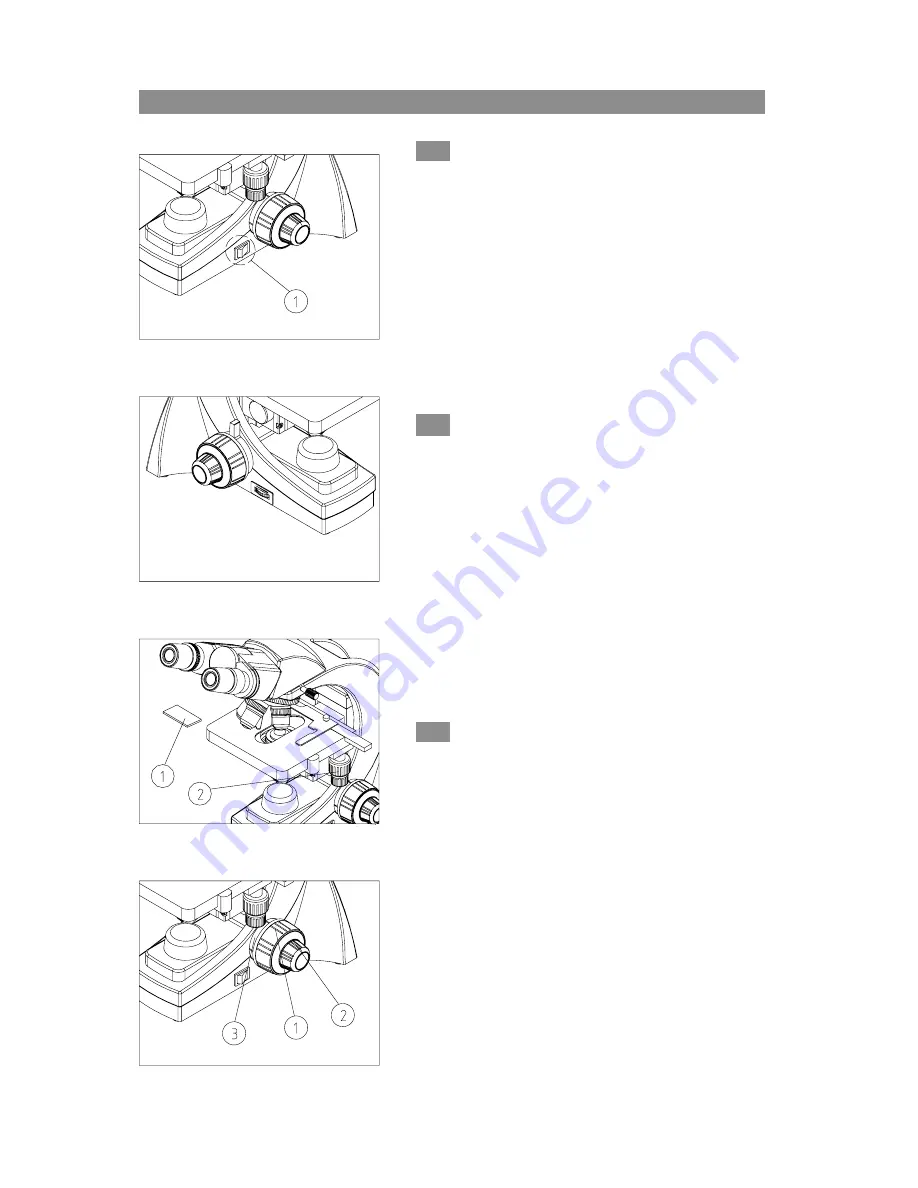
BMS C1
3.2 Operation
3.2.1 Adjusting the Illumination (Fig.20,21)
1.
Connect the power, turn on the main switch (figure 15) to
“-”(on).
2.
Turning the brightness adjustment knob anti-clockwise, the
voltage raise, and the brightness strengthen; turning it
clockwise, the voltage decline, and the brightness weaken.
Using the lamp in a low voltage condition, will prolong the
use life.
3.3.2
Placing Specimen (Fig.22)
1.
Place the slide on the mechanical stage. Use the stage
clips to clamp the slide gently.
2.
Turn the portrait and lateral adjustment knob of the
mechanical ruler, move the specimen onto the required
position.
Be careful when changing the objective. If you finish
the observation with the short working distance
objective, and want to change another one, be careful
of not letting the objective touch the specimen.
3.3.3 Focusing (Fig.23)
1
、
Use the 10×objective focus, to avoid the objective touch with
the specimen, you should raise the mechanical stage at first,
let the specimen close to the objective, then slowly separating
them to focus.
The operator can converse turn the coarse focus knob
①
to get
the specimen down ,and search images in the 10×ocular
simultaneously, then use the fine knob
②
to focus. At this
moment, you can replace other magnification objectives safely,
and focus without the risk of destroying the specimen.
If you need to fix the stage on a vertical position
to make the observation become more convenience, take
use of the locking set.
9
Fig.20
Fig.22
Fig.21
Fig.23


































